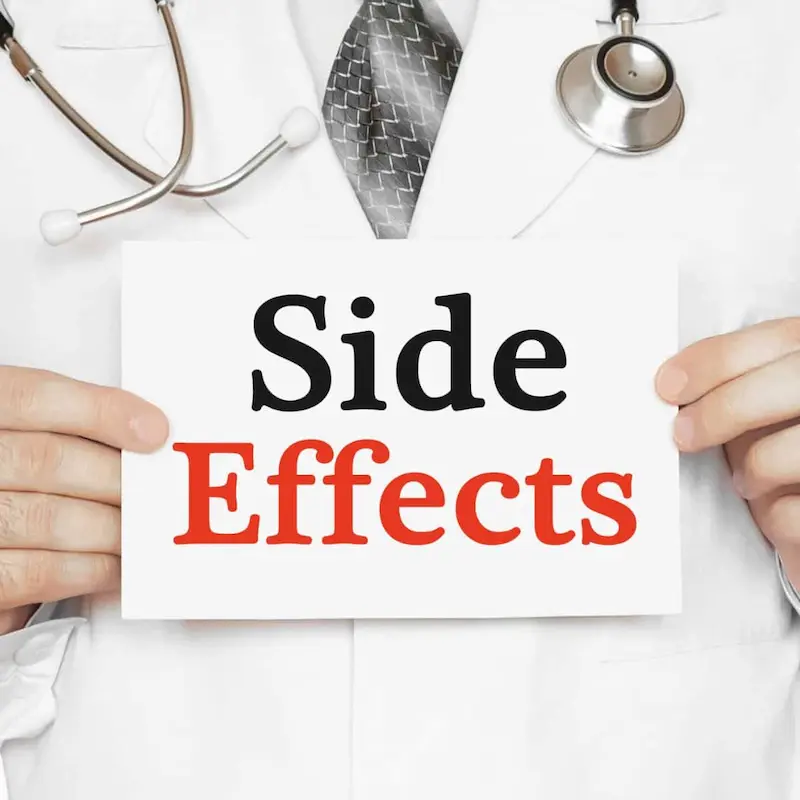Last Updated on January 3, 2025
Anadrol is a potent anabolic steroid commonly used to promote muscle growth and strength. While its ability to increase lean muscle mass is well recognized, it’s crucial to understand the nutritional implications associated with Anadrol consumption. Proper diet and nutrition are imperative to maximize the benefits and mitigate any potential health risks that may arise from its use.
Individuals using Anadrol should pay particular attention to their daily dietary intake. Incorporating a nutrition plan that supports the body’s altered metabolic demands while on Anadrol can enhance its efficiency. This involves a careful selection of macronutrients, adequate hydration, and the strategic use of dietary supplements that align with the user’s health needs and fitness goals.
Managing the side effects of Anadrol is equally important to protect long-term health. A tailored diet may help ease some of the common adverse effects linked to steroid use. By combining sound nutritional strategies with a thorough understanding of Anadrol’s impact on the body, users can not only boost their muscle-building efforts but also maintain overall wellness.
Quick Summary
- Proper nutrition is crucial to enhance Anadrol’s benefits and minimize its risks.
- A tailored diet helps manage Anadrol’s side effects and supports metabolic needs.
- Strategic supplementation can aid in achieving specific health and fitness goals.
Understanding Anadrol and Its Effects on the Body

Anadrol, known generically as oxymetholone, is a potent oral anabolic steroid. It is often used to promote weight gain in various conditions, treating anemia, and to support muscle growth in malnourished or underdeveloped patients. Its primary effect is to increase the production of red blood cells, thus enhancing oxygen delivery to muscles, leading to improved endurance and performance.
Nutritional Interactions: When using Anadrol, individuals should consider how it interacts with their nutritional status. For example:
- Caloric Intake: Increased muscle mass may lead to a higher basal metabolic rate requiring a caloric surplus.
- Protein Consumption: Adequate protein is crucial to support muscle repair and growth.
Possible Side Effects: Some of the effects on the body may necessitate specific dietary adjustments:
- Increased appetite may require controlled nutrient-dense meals.
- Water retention may demand a lower sodium intake.
- Liver strain suggests a diet low in alcohol and rich in liver-supporting nutrients like vitamin E and C.
Dietary Tips:
- Fibrous Vegetables: To aid digestion and nutrient absorption.
- Healthy Fats: For hormonal balance and liver health.
- Complex Carbohydrates: To supply steady energy for workouts.
Guidance on Diet and Nutrition: Proper hydration is critical due to Anadrol’s potential to cause water retention. A balanced diet rich in vitamins, minerals, and antioxidants is necessary to support the body’s increased demand during steroid use.
Optimizing Nutrition and Anadrol

Proper nutrition can maximize the benefits and minimize potential health risks while on an Anadrol cycle. Attention to macronutrient balance, hydration, and nutrient timing is crucial.
Macronutrient Considerations
Protein: Anadrol users should aim for 1.5 to 2 grams of protein per kilogram of body weight to support muscle repair and growth. Select lean sources such as chicken, fish, and plant-based proteins.
Carbohydrates: Carbohydrates are key for energy; aim for complex carbohydrates like whole grains and vegetables to provide a stable release of energy.
Fats: Healthy fats, particularly omega-3 fatty acids found in fish and flaxseeds, support hormone regulation and cellular function.
Hydration and Electrolyte Balance
The importance of hydration cannot be overlooked as Anadrol can cause fluid retention. Aim for at least 3 liters of water daily. Adequate electrolytes such as sodium, potassium, and magnesium are essential for muscle function and preventing cramps.
Timing of Nutrient Intake
Pre-Workout: A combination of protein and carbohydrates can fuel training sessions.
Post-Workout: A high-protein meal or shake with carbohydrates helps in muscle recovery. Timing this within 30 minutes to an hour after training maximizes muscle repair processes.
Health Considerations and Managing Side Effects

When using Anadrol, a potent anabolic steroid, it is crucial to address the potential health implications and manage side effects proactively to maintain overall well-being.
Liver Health and Support
Anadrol is hepatotoxic, meaning it can cause liver damage. Regular liver function tests are recommended to monitor hepatic health. Incorporating liver support supplements such as milk thistle or N-acetyl cysteine (NAC) is advised to aid in liver detoxification and protection.
Cholesterol and Cardiovascular Health
Anadrol can negatively impact cholesterol levels, potentially leading to cardiovascular issues. Regular lipid panels are necessary to track changes in cholesterol profiles. Implementing a diet low in saturated fats and rich in omega-3 fatty acids—like those found in fish oil supplements—may help mitigate these effects.
Hormonal Balance and Endocrine Support
Disruption to the endocrine system is likely with Anadrol use since it can alter natural hormone production. Post-cycle therapy (PCT) is necessary to help restore hormonal balance. The use of aromatase inhibitors during the cycle can prevent estrogen-related side effects, while selective estrogen receptor modulators (SERMs) during PCT can aid in normalizing testosterone levels.
References
- Liver health and support with Anadrol: https://www.ncbi.nlm.nih.gov/pmc/articles/PMC2000733/
- Cholesterol and cardiovascular health related to Anadrol use: https://www.ahajournals.org/doi/full/10.1161/01.CIR.103.15.1823
- Hormonal balance and endocrine system considerations with Anadrol: https://pubmed.ncbi.nlm.nih.gov/15248788/
Dietary Supplements and Anadrol Enhancement

When incorporating Anadrol, a powerful anabolic steroid, into a fitness regimen, it’s critical to pair it with the right dietary supplements to maximize benefits and reduce potential side effects. This section outlines specific supplements that can support Anadrol users.
Protein and Amino Acids
Protein and amino acids are fundamental for muscle repair and growth, especially when using Anadrol. Quality sources such as whey protein provide the necessary building blocks to support enhanced muscle protein synthesis. Amino acid supplements like BCAAs (branched-chain amino acids) can further assist in recovery and muscular endurance.
- Recommended Protein Intake: 1.6-2.2 g/kg of body weight
- BCAAs: Leucine, Isoleucine, Valine – commonly in a 2:1:1 ratio
Creatine and Muscle Growth
Creatine is a well-studied supplement that can improve strength and lean muscle mass. Its role in regenerating ATP makes it an excellent companion for Anadrol users, who are likely to be engaging in high-intensity training.
- Daily Creatine Supplement: 5 g/day
- Forms of Creatine: Monohydrate (most researched), Hydrochloride (HCL), Ethyl Ester
Vitamins and Minerals for Holistic Support
Vitamins and minerals support overall health and the body’s ability to cope with the increased demands of training with Anadrol. Specific nutrients like Vitamin D, Zinc, and Magnesium are significant for testosterone production and muscle function.
- Key Vitamins: Vitamin D (10-20 µg/day), Vitamin C (500-1000 mg/day)
- Essential Minerals: Zinc (10-30 mg/day), Magnesium (200-400 mg/day)
References
- “Anadrol and Whey Protein Synergy” – Journal of Applied Physiology https://www.physiology.org
- “BCAAs and Their Impact on Muscle Endurance” – European Journal of Sport Science https://www.tandfonline.com
- “The Effects of Creatine Supplementation” – The Journal of Strength & Conditioning Research https://journals.lww.com
- “Vitamin D and Its Effects on Testosterone Levels” – Hormone and Metabolic Research https://www.thieme-connect.com
- “Mineral Demand in High-performance Athletics” – International Journal of Sport Nutrition and Exercise Metabolism https://journals.humankinetics.com
Strategies for Customizing Your Diet Plan

Crafting a dietary approach tailored to an individual’s goals and the intense muscle-building power of Anadrol requires strategic adjustments and professional guidance.
Personal Nutritional Needs
Before making dietary changes, one’s baseline nutritional needs must be understood. These are influenced by factors such as age, sex, weight, height, and physical activity level. Macronutrients (protein, carbohydrates, and fats) and micronutrients (vitamins and minerals) should be balanced to support overall health. For instance, protein demands might significantly increase to support muscle repair and growth induced by Anadrol.
Adjusting Diet for Cutting or Bulking
During a bulking phase, emphasis is placed on a caloric surplus with a balanced increase in macronutrients to facilitate muscle growth. Higher protein intake is crucial, which can be calculated as 1.2 to 2.0 grams of protein per kilogram of body weight. When cutting, the aim shifts towards maintaining muscle mass while reducing fat; this involves a more controlled caloric deficit, often with a greater reliance on lower glycemic index carbohydrates and sustained protein intake to prevent muscle catabolism.
Consultation with a Dietician or Nutritionist
Professional dieticians or nutritionists can offer personalized dietary guidance matched to Anadrol use. They can suggest specific nutrient optimization, appropriate portion sizes, and meal timing that align with the pharmacokinetics of Anadrol, ensuring the user gets the most out of their cycle without compromising health.
References
- International Society of Sports Nutrition Position Stand: Protein and Exercise – https://www.jissn.com/content/4/1/8
Frequently Asked Questions

References
[https://www.mayoclinic.org/drugs-supplements/oxymetholone-oral-route/side-effects/drg-20065634] [https://pubmed.ncbi.nlm.nih.gov/7018798/]
Author

Dr. Grant Fourie
Hi, I’m Dr. Grant Fourie, a dedicated medical professional passionate about advancing healthcare in our community. With 20+ years' of medical background, I strive to provide compassionate and innovative care to my patients. Outside the clinic, I enjoy sport and fitness hobbies, which keep me balanced and inspired.


